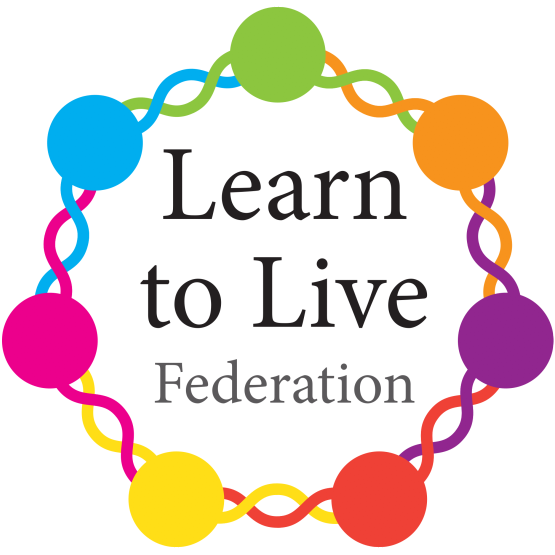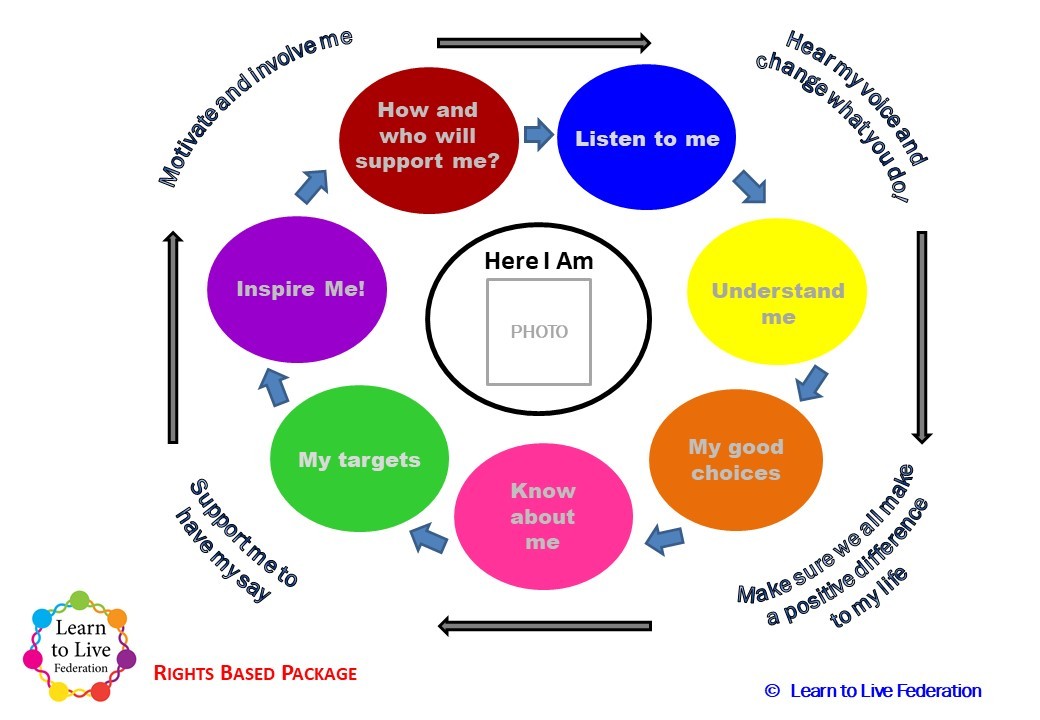Learn to Live is an effective and efficient method for hearing the voice of children, young people and their families in order to inform the decisions about them. It works by giving families a voice and professionals a framework to listen and respond. Learn to Live is about planning and working together leading to highly effective provision with a big impact on positive outcomes for children and young people. It is based on a set of rights supported by practical tools and processes.
"Listen to Me" is an ‘in’ to hearing what motivates the child or young person, what works for them and what stops things working for them. The focus of Listen to Me is the child or young person. They may complete it for themselves or, depending on the abilities it may be completed with/for them by the family and/or school. There is a section to make sure that the impact on the family is also heard.
The insights that Listen to Me will provide will contribute to every aspect of local assessment frameworks and the Education, Health and Care plans (ECHP) and make the paperwork more meaningful. The set of rights is a core promise for every child and young person. The core promise is to satisfy each element below through an annual cycle. It ensures that personalised approaches are more than just a phrase. It is a comprehensive, coherent and disciplined method to make person centred planning a reality. The elements of the core promise are:
-
the right to be listened to, (e.g. by using a process called “Listen to Me” and holding annual Person-Centred Reviews);
-
the right to communicate, (e.g. through Communication Profiles, IT to support communication and additional Speech and Language Therapy provided by NHS SALT);
-
the right to be helped to make good decisions (by having opportunities to choose and to learn about decision making and through excellent behaviour support systems);
-
the right to be known as an individual, (through one-page profiles, very close working with families, staff training in understanding the needs of individuals);
-
the right to inform plans and targets made for them, (through termly Home:School agreement meetings where families, school and the learner work together to set short term targets and by supporting young people to assess their own learning);
-
the right to be inspired (by a motivating curriculum and a broad range of additional activities, adventurous opportunities, inclusion and work experience for older students); and
-
the right to have a plan that meets their needs.
There are 4 important principles that support these rights:
- Support me to have my say: Each school employs a Lead Advocate, who run advocacy services to ensure individuals have the help they need to have their voice heard. The student council in each school has elected student representatives. They are involved in creating the Federation Development and Innovation Plan (FDIP), teacher recruitment and key decisions, such as building projects. Advocacy Champions across the schools, trained and supported by the Advocacy Leads, ensure the voice of learners is heard in all contexts, not only in discrete advocacy sessions.
- Hear my voice and change what you do: The school exists solely for learners and their families and needs to change and develop according to their needs. Information about what is and isn’t working for children/ young people and their families is collected every year from the annual person-centred reviews, and used to inform the Federation Development and Innovation Plan.
- Motivate and involve me: What are the things that make every individual “tick”? How can we use this to get them interested in their learning? By working closely and respectfully with families and by understanding different learning styles, we can find the “twinkle” in every child/ young person and help them to achieve their potential.
- Make sure we all make a positive difference to my life: we need to think about the impact that learning is likely to have on the future life chances and choices of our learners: “Will I get a job/live independently/with support? Keep in touch with my friends and make new friends?” “Will I feel good about myself and will others understand and respect me?” Our leavers leave school with a solid plan and a carefully-considered set of next steps that they and their family have been fully involved in. Many achieve external accreditation and some achieve certificates. All have experienced respect, choice and opportunity.

